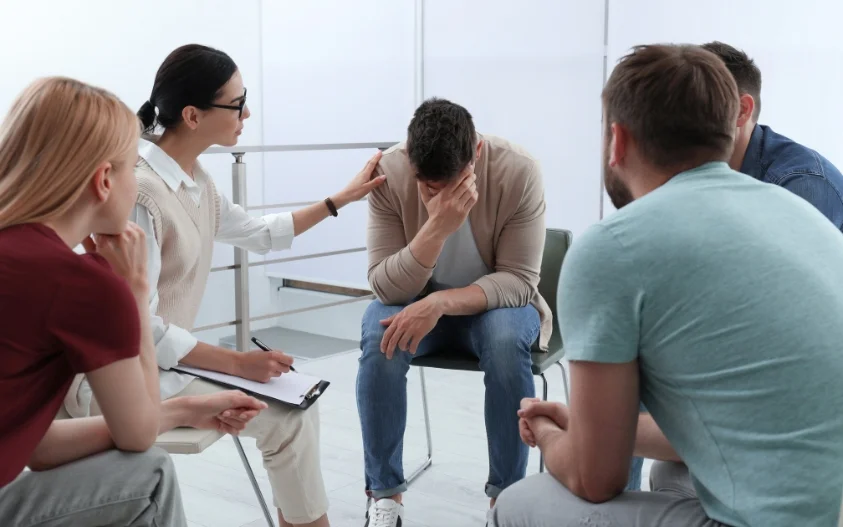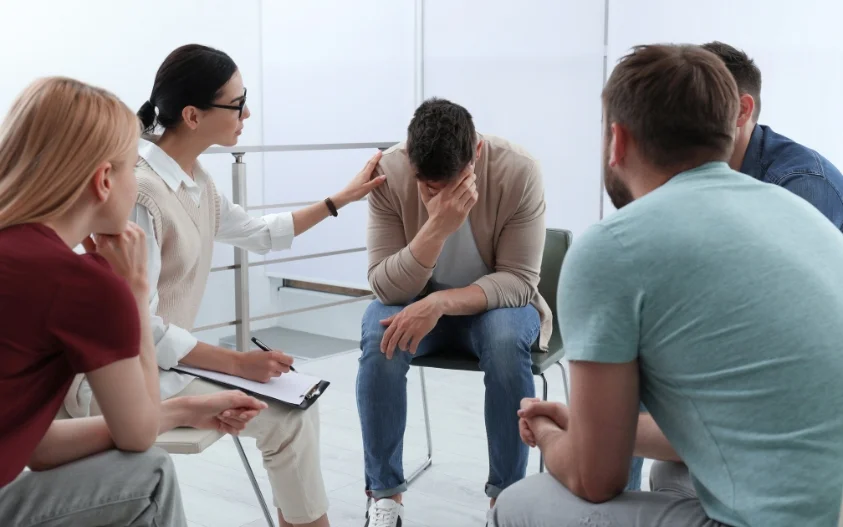24/7 Helpline:
(866) 899-221924/7 Helpline:
(866) 899-2219
Learn more about PTSD Rehab centers in Butler County

Other Insurance Options

Magellan

Excellus

Amerigroup

Horizon Healthcare Service

Molina Healthcare

Ceridian

Access to Recovery (ATR) Voucher

Optum

BlueCross

Covered California

American Behavioral

MHNNet Behavioral Health

Humana

Evernorth

Choice Care Network

Cigna

Premera

Carleon

Meritain

BHS | Behavioral Health Systems

Southeast Missouri Behavioral Health – South Main Street
Southeast Missouri Behavioral Health - South Main Street is an outpatient facility that offers treat...

Southeast Missouri Behavioral Health
Southeast Missouri Behavioral Health - New Era Center is a residential facility that offers treatmen...

Behavioral Health Group
Behavioral Health Group is a private rehab located in Poplar Bluff, Missouri. Behavioral Health Grou...





























FCC Behavioral Health – Butler County Clinic
FCC Behavioral Health is a private, non-profit community behavioral health center with a proven hist...

Correctional Counseling
Correctional Counseling is a private rehab located in Poplar Bluff, Missouri. Correctional Counselin...

Poplar Bluff Medical Center – Outpatient
Poplar Bluff Medical Center – Outpatient is a private rehab located in Poplar Bluff, Missouri. Popla...

Poplar Bluff Regional Medical Center – Behavioral Health
Poplar Bluff Regional Medical Center - Behavioral Health, located in Bluff, Missouri, offers alcohol...

AA – Alcoholics Anonymous – Unity Group
AA – Alcoholics Anonymous – Unity Group is a non-profit rehab located in Poplar Bluff, Missouri. AA ...

Southeast Missouri Behavioral Health – Vine St
Southeast Missouri Behavioral Health - Vine St is an outpatient facility that offers treatment for i...






















































